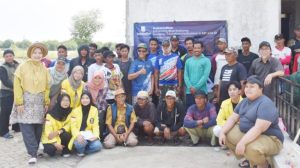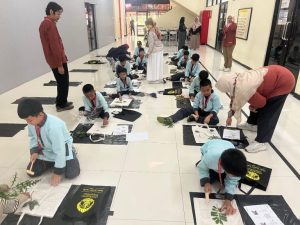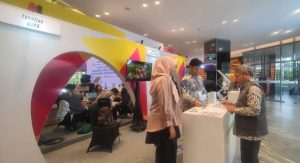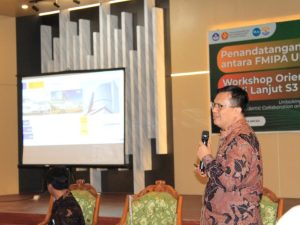|
FMIPA UI Holds Diabetes Education Program in Depok, Residents Enthusiastically Participate in Health Screenings
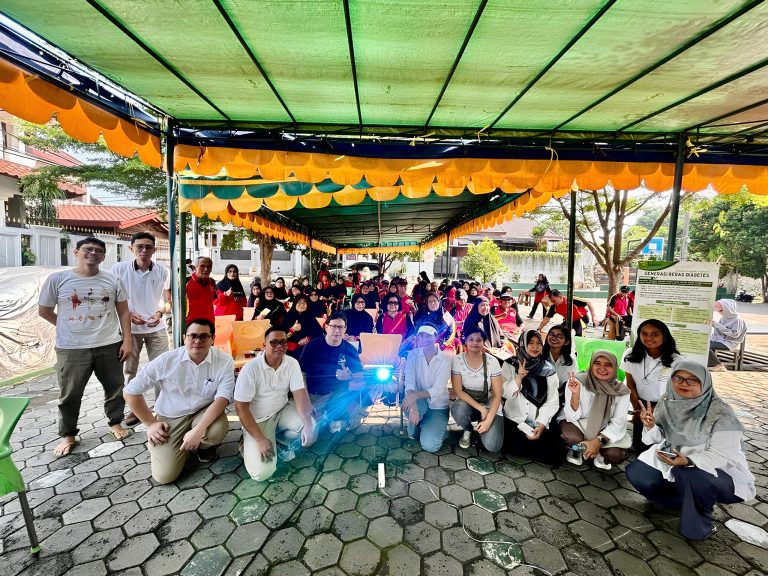
The atmosphere at the RW 15 Basketball Court in Tugu Subdistrict, Cimanggis District, looked different on Sunday (12 October 2025). Aerobic music echoed from the morning, accompanied by lines of residents waiting to undergo health checks and consultations. This activity was part of a community service program (Pengmas) by the Faculty of Mathematics and Natural Sciences, Universitas Indonesia (FMIPA UI), through the Department of Chemistry, titled “A Diabetes-Free Generation: Know, Prevent, and Fight.”
The event, which involved 15 lecturers, 6 students, and medical personnel from the UI Faculty of Medicine, was attended by around 90 residents. The activities included health education, exercise sessions, and free health screenings. Residents appeared enthusiastic, with many arriving early to join the exercise and check-ups. Participants also wore matching red-themed S3LOKA Bukit Cengkeh 1 sports uniforms, highlighting their sense of togetherness and strong interest in taking part in the event.

The Head of the Community Service Team, Pugoh Santoso, S.Si., M.Si., Ph.D.Eng., stated that this activity was held in response to the high prevalence of diabetes in Indonesia. Data from the International Diabetes Federation (IDF) places Indonesia as the country with the fifth-highest number of diabetes cases in the world, ranking below China, India, Pakistan, and the United States.
This situation is becoming increasingly alarming because data from the Basic Health Research (Riskesdas) and the Indonesia Health Survey (SKI) show that the disease has affected individuals in the productive age group of 20–79 years. In fact, around 86 percent of people with diabetes remain undiagnosed and 70 percent are uncontrolled, meaning that most of the population is living with high risk without realizing it.
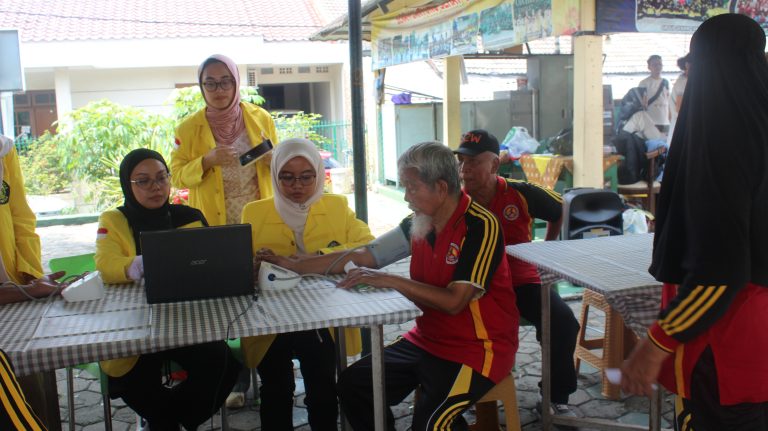
“Diabetes is not only a medical issue, but also a matter of lifestyle. That is why we chose an educational approach that is simple and easily accepted by families,” said Pugoh.
The program showcased cross-disciplinary synergy between chemists and medical professionals. Serving as a resource person, Dr. Muhammad Firhat Idrus, Sp.PD., SubSp.GEH, noted that the activity is effective for early detection.
“Many people only realize they are at risk of diabetes when complications begin to appear. Screenings like this help detect the early signs,” he said.

In addition to clinical material, the team also provided nutrition education. According to Samira Husen Alamudi, S.Si., Ph.D., the public still has limited understanding of the different types of diabetes and their associated risks.
“We explained eating patterns, ideal portions, and foods that contain hidden sugars. The goal is for residents to be able to apply this directly in their daily lives,” she said.
The Head of RW 15, Sabarudin, expressed his appreciation for the implementation of the program, which has now entered its third year. He hopes that the program can continue to be held sustainably.
“Having specialist doctors involved this year has made residents even more enthusiastic. Our hope is that this activity can be held regularly,” he said.
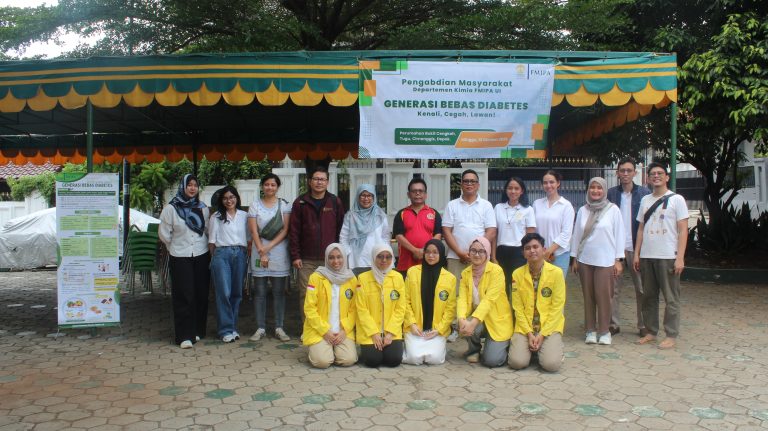
The Vice Dean of FMIPA UI, who is also a resident of RW 15, Prof. Dr. rer.nat. Budiawan, stated that health screenings like this are greatly needed by the community, especially the elderly.
“Parameters such as blood sugar and cholesterol are important to monitor, yet many people have not had the opportunity to get checked,” he said.
The Head of the Department of Chemistry at FMIPA UI, Asep Saefumillah, stated that the community service program (Pengmas) is the university’s effort to strengthen its role within society.
“The knowledge we possess becomes meaningful when it can be applied directly. For us, success is not merely about the number of participants, but about changes in behavior,” he said.
Pugoh emphasized the importance of maintaining the continuity of the program and expanding its reach. He hopes that the education provided will encourage the community to become more aware of the importance of early prevention.
“Diabetes is the result of long-term habits. That is why education must continue. Prevention is better than cure,” he said, closing the event.
Share this:
Other News

